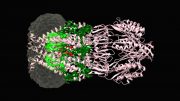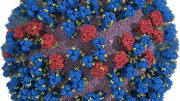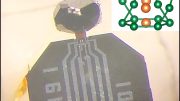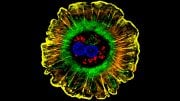
Scientists uncovered the pathway through which tumor suppressor genes are inactivated
Researchers have identified a RAS-regulated pathway that initiates and maintains the epigenetic silencing of tumor suppressor genes in mice, a finding that may help provide personalized therapy for RAS-mutant cancers.
When genes that normally suppress tumor growth are themselves suppressed, cancer cells can grow and proliferate uncontrollably. A new study led by a researcher at Yale University has uncovered the pathway through which some of these tumor suppressor genes are inactivated — a finding that could have implications for the treatment of certain cancers. The study appears online in the journal Genes and Development, published by the Cold Spring Harbor Laboratory Press.
Focusing in mice on the RAS family of cell-signaling oncoproteins (genes that can turn normal cells into cancerous ones), the research team stopped the RNA transcription process that controls cell growth by either turning it on or off. In doing so, they found that RAS-led silencing occurs through a highly ordered genetic pathway that is continuously functioning, and dependent on many co-factors. They also discovered that the silencing action of this pathway is initiated by a specific DNA-binding protein called ZFP354B, and abetted by modified gene expression.
The team further found that all of these steps were required for the tumor suppressor genes to be silenced. This research could lead to the development of therapies that interfere with the silencing of RAS-positive cancers, including pancreatic, colorectal, lung, and thyroid cancer.
“Oncogenic RAS mutations are found in about a third of all human cancers, but there are no current therapies that can effectively treat these cancers,” said first author Narendra Wajapeyee, assistant professor of pathology at Yale School of Medicine and a member of Yale Cancer Center. “We have identified a RAS-regulated pathway that initiates and maintains the epigenetic silencing of tumor suppressor genes, and we are hopeful that many of the components of these pathways can be targeted for providing personalized therapy for RAS-mutant cancers.”
Other authors include Sunil Malonia, Rajendra Palakurthy, and Michael Green of the University of Massachusetts Medical School.
The study was funded by grants from the National Lung Cancer Partnership/United Against Lung Cancer; the Melanoma Research Alliance; the International Association for the Study of Lung Cancer, and the National Institutes of Health (R01GM033977).
Reference: “Oncogenic RAS directs silencing of tumor suppressor genes through ordered recruitment of transcriptional repressors” by Narendra Wajapeyee, Sunil K. Malonia, Rajendra K. Palakurthy and Michael R. Green, Genes & Development.
DOI: 10.1101/gad.227413.113









RAS family of cell-signaling oncoproteins (genes that can turn normal cells into cancerous ones) and RAS silencing action is initiated by a specific DNA-binding PROTEIN called ZFP354B. NOW THERE LIES A PLAN FOR PROTEIN ACTION UNIVERSALLY IN BIOLOGY. Proteins are formed by the cells and sent to the targets for switching on and off the action. There are also additional switches on its pathway to regulate. They are called receptor switches which can be blocked to stop the action. We call them as protein gates etc for regulation of ions ,insulin, dopamine, sex hormone, adrenaline etc. These gates are also made up of proteins and signalling proteins are also formed by the same DNA of the cell nucleus. ‘Prions’ the disruptor proteins are also made by the same DNA. Thus the life plan is to create, sustain and destroy through proteins which are made by the same tools of proteins ,machinery (ribosomes), and products. Thus pathway to silence the tumour producing genes through proteins is a good plan indeed. Thank You.